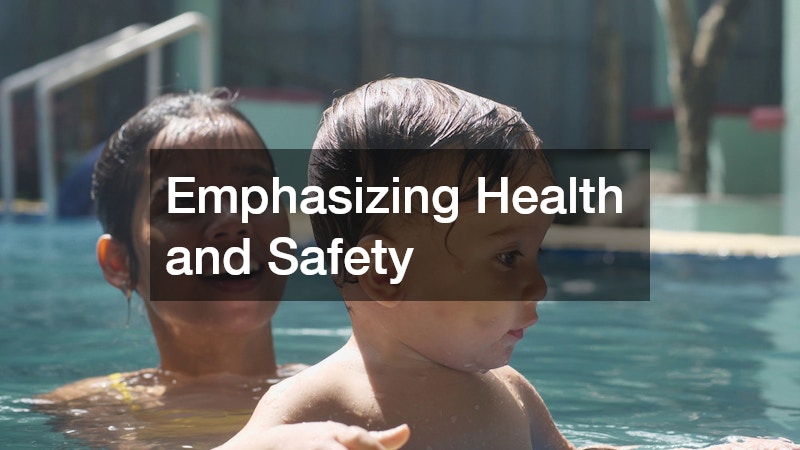Supporting Your Child’s Growth: Creative Ways to Encourage Exploration of New Hobbies
Children are naturally curious, and supporting their growth often means guiding them to explore activities beyond the familiar. Hobbies aren’t just pastimes—they shape confidence, creativity, discipline, and social skills. Yet, as parents, we often face challenges: our kids may resist trying new things, stick to what they know, or feel overwhelmed by options. This blog provides practical, creative ways to encourage children to try new hobbies, highlighting strategies for parents, educators, and caregivers alike.

Understanding Your Child’s Interests
Before introducing new hobbies, it’s essential to observe your child’s natural preferences and strengths. Some kids gravitate toward active play, while others thrive in quiet, creative pursuits. Take time to notice what excites them: Do they enjoy building things? Listening to music? Solving puzzles?
Exploring your child’s interests allows you to introduce activities that align with their natural tendencies, making them more likely to engage enthusiastically. For instance, some children might benefit from enrolling in a swim school to build water confidence, while others may prefer activities that develop fine motor skills, like drawing or crafting. By tuning into their curiosity, you can select hobbies that feel inviting rather than forced, creating a foundation for lifelong engagement.
Encouraging self-expression early helps children develop intrinsic motivation. When kids feel they have a say in what they pursue, they’re more likely to stick with hobbies and reap the social and cognitive benefits of sustained involvement.
Cultivating Patience and Reflection
Learning a new hobby often requires trial, error, and patience. Teaching children to reflect on their experiences—what worked, what challenges they faced, and what they enjoyed—helps build self-awareness and resilience. Encouraging journaling, sketching, or discussing their progress can make them more mindful and intentional in their pursuits. Reflection not only enhances skill development but also helps children develop a growth mindset, where challenges are seen as opportunities rather than setbacks.
Making Hobbies Social
Hobbies are often more appealing when children can share them with peers. Group activities foster teamwork, social learning, and a sense of belonging. Consider enrolling your child in karate classes for kids, where discipline, self-confidence, and camaraderie intersect. Martial arts not only promote physical fitness but also help children learn patience, focus, and respect for others.
Social interaction in hobby settings encourages communication and collaboration skills. Children learn to negotiate, share resources, and celebrate collective achievements. Moreover, observing peers in action can inspire kids to try new moves or techniques they might not explore alone.
Parents can reinforce this social aspect by organizing small group activities at home or arranging playdates centered around shared hobbies. This combination of structured classes and casual social settings makes trying new activities exciting rather than intimidating.

Incorporating Hobbies into Everyday Life
Integrating hobbies into daily routines ensures consistency and reduces the pressure of “extra” activities. Small, habitual steps make hobbies feel like a natural part of life rather than an obligation. For example, a school might host snack fundraisers for schools, where children can participate by helping to plan, prepare, or sell items. This blends practical skills like organization and teamwork with creativity, and it allows children to feel ownership over their contribution.
Incorporating hobbies into daily life can also involve simple home adaptations. Set up a craft corner, a reading nook, or a music space where children can explore freely. Even brief, regular exposure encourages skill development and fosters curiosity. Children often learn best through repetition in low-pressure environments, making hobby integration an essential component of their growth.
Encouraging Creative Thinking
Creative hobbies nurture problem-solving, imagination, and innovation. Providing open-ended opportunities—such as drawing, building, or role-playing—encourages children to think beyond conventional solutions. Attending a Montessori school can also be beneficial, as these environments emphasize self-directed learning and creative exploration. Children in Montessori classrooms are often exposed to various tools and materials that stimulate independent thinking, from practical life exercises to artistic expression.
Parents can replicate this approach at home by offering choices rather than directives. Instead of saying, “You must paint this,” suggest options like, “Would you like to paint a landscape or a character?” This empowers children to make decisions while experimenting with their creativity, building confidence and fostering intrinsic motivation.
Balancing Structured and Unstructured Play
Both structured and unstructured play are vital for children’s development. Structured activities, like team sports or lessons, teach discipline, rules, and perseverance. Unstructured play, however, promotes creativity, flexibility, and self-discovery. By striking a balance, parents provide children with the freedom to explore while maintaining supportive guidance.
For example, engaging your child in fine arts programs can offer structured skill-building through lessons and workshops while allowing free exploration during open studio time. In this way, children learn techniques but also experiment with colors, shapes, and materials independently. A balance of structured and unstructured experiences helps children find what resonates most, supporting both skill acquisition and imaginative expression.

Emphasizing Health and Safety
Physical hobbies require attention to health and safety. Swimming, sports, and outdoor activities are excellent for fitness, coordination, and confidence, but parents should ensure environments are safe and hygienic. For instance, when maintaining a home or community pool, using organic swimming pool chemicals can help protect children from harsh chemical exposure while keeping the water clean.
Promoting safety helps children feel secure, which encourages participation and reduces anxiety. It also models responsible habits, teaching kids to take care of their surroundings and themselves. Whether choosing appropriate equipment, protective gear, or eco-friendly solutions, mindful preparation ensures hobbies remain enjoyable and beneficial.
Encouraging Peer Mentorship
Pairing children with slightly older peers or mentors can inspire confidence and provide guidance as they explore new hobbies. Mentors can model skills, share tips, and offer encouragement, making unfamiliar activities feel more approachable. Peer mentorship also fosters social connection, empathy, and teamwork, while giving children a sense of accountability and motivation. By seeing someone close to their age succeed, children are often more willing to take risks and persist through challenges, deepening their engagement and enjoyment.
Fostering Lifelong Learning
Encouraging hobbies early instills a love of learning that extends beyond childhood. Hobbies can teach research skills, goal setting, and persistence. For example, elementary-aged children benefit from activities that challenge both mind and body, such as coding, science experiments, or team sports. In elementary schools, teachers often integrate clubs and activity periods where children can explore interests like chess, gardening, or creative writing. These early exposures lay the foundation for lifelong curiosity and adaptability.
Supporting curiosity and resilience through hobbies helps children develop a growth mindset. They learn to embrace challenges, overcome setbacks, and celebrate progress. Hobbies also provide a safe space to practice patience and focus, skills that translate into academic and personal success.

Exploring Academically Enriching Hobbies
Hobbies don’t have to be purely recreational—they can complement academic development. STEM projects, reading clubs, or musical instruments enhance cognitive skills while remaining enjoyable. Parents seeking an academically stimulating environment might consider enrolling their child in the best private school, where extracurricular programs are integrated with rigorous curricula.
Exposure to diverse activities helps children discover hidden talents, from math puzzles to creative writing or performing arts. Encouraging exploration of academically enriching hobbies equips children with problem-solving skills, discipline, and adaptability. Moreover, it demonstrates that learning can be enjoyable and connected to real-world experiences, reducing resistance to trying new things.
Nurturing Artistic Expression
Artistic hobbies like painting, drawing, drama, and music allow children to express emotions, develop fine motor skills, and build confidence. Participation in a music program can cultivate rhythm, coordination, and appreciation for different styles. Whether learning an instrument, singing, or engaging in ensemble performances, children gain valuable social and cognitive benefits while enjoying creative self-expression.
Parents can support artistic hobbies by providing materials, attending performances, and celebrating achievements, no matter how small. Encouragement and recognition reinforce effort and progress, motivating children to continue exploring their creative potential. Artistic hobbies also serve as an outlet for stress and a means of communicating feelings that may be difficult to verbalize.
Experiencing Performance Opportunities
Performing in front of others helps children build confidence, resilience, and public speaking skills. Stage experience, whether in drama, music, or debate, teaches children how to handle nerves, prepare thoroughly, and connect with audiences. Participation in events at a concert venue provides real-world experience that can be both thrilling and educational.
Performance opportunities also foster a sense of achievement. Children learn that preparation, practice, and dedication lead to tangible outcomes. Parents can support this growth by attending performances, providing constructive feedback, and emphasizing effort over perfection. Experiencing the thrill of performing encourages continued exploration and reinforces the value of persistence.
Supporting Hobbies Through Family Engagement
Families play a crucial role in nurturing children’s hobbies. Sharing hobbies together strengthens bonds and models enthusiasm for exploration. Family outings, weekend projects, or collaborative creative activities provide opportunities for children to learn and grow in supportive environments.
Even small gestures, like dedicating time to learn alongside a child or discussing their progress, validate their interests. Parents who show genuine curiosity about their child’s activities foster an environment where hobbies are celebrated rather than pressured. Family engagement demonstrates that exploration and growth are communal, enjoyable, and worth investing time in.
Using Technology to Spark Interest
When used thoughtfully, technology can be a powerful tool to introduce children to new hobbies. Educational apps, online tutorials, and virtual clubs offer opportunities for children to explore areas they might not have access to locally, from coding and digital art to creative writing and science experiments. By guiding children toward high-quality resources and monitoring screen time, parents can ensure that technology complements hands-on experiences rather than replacing them, making learning both fun and interactive.

Encouraging Consistency and Patience
Developing skills in a hobby requires time and persistence. Children may initially resist new activities or struggle to progress. Encouraging consistency and modeling patience helps children build resilience and a growth mindset. Setting realistic expectations and celebrating small milestones reinforce effort and progress.
Parents can use strategies like establishing weekly practice times, creating visual progress charts, or offering gentle encouragement when children feel discouraged. Over time, these consistent habits reinforce positive associations with learning and exploration, helping children internalize the rewards of dedication.
Making Hobbies Affordable and Accessible
Financial barriers often limit children’s opportunities to try new hobbies. Fortunately, many creative solutions exist to make activities more accessible. Local community centers, school clubs, and volunteer-led programs often provide low-cost or free options. Participating in snack fundraisers for schools or similar events can also support hobby funding, enabling children to access supplies, lessons, or experiences without undue burden.
Parents can encourage children to contribute ideas for fundraising or volunteer projects, teaching responsibility while funding their interests. Creative approaches to affordability ensure that financial constraints don’t stifle curiosity or growth, and children learn the value of initiative, resourcefulness, and contribution.
Celebrating Progress and Effort
Recognizing effort rather than perfection is vital for sustaining interest in hobbies. Celebrating small achievements, improvements, and milestones motivates children to continue exploring new activities. Positive reinforcement can take many forms: verbal praise, certificates, display of artwork, or showcasing performances.
When children feel their efforts are acknowledged, they gain confidence and intrinsic motivation. Parents can emphasize learning over outcome, highlighting persistence, creativity, and curiosity. Celebrating progress instills a mindset where trying new things becomes exciting rather than intimidating, nurturing lifelong engagement.
Encouraging Outdoor Exploration
Spending time outdoors offers children unique opportunities to develop curiosity and resilience. Nature provides a stimulating environment where kids can engage in imaginative play, problem-solving, and physical activity simultaneously. Hiking, gardening, or simply exploring a local park encourages observation, creativity, and independence. Outdoor hobbies also promote physical health, reduce stress, and help children develop an appreciation for the natural world, all while supporting their emotional and cognitive growth.
Supporting your child’s growth through hobbies is a rewarding journey. By understanding interests, offering social opportunities, balancing structured and unstructured play, fostering creativity, ensuring safety, and celebrating progress, parents can guide children toward discovering passions that enrich their lives. Hobbies cultivate resilience, curiosity, social skills, and confidence. By providing opportunities, encouragement, and guidance, parents help children embrace exploration as a joyful, lifelong pursuit. Encouraging hobbies is more than keeping children busy—it’s about nurturing growth, self-expression, and the confidence to embrace the unknown. Every new experience is a step toward independence, creativity, and fulfillment, laying the foundation for a well-rounded, resilient individual.
